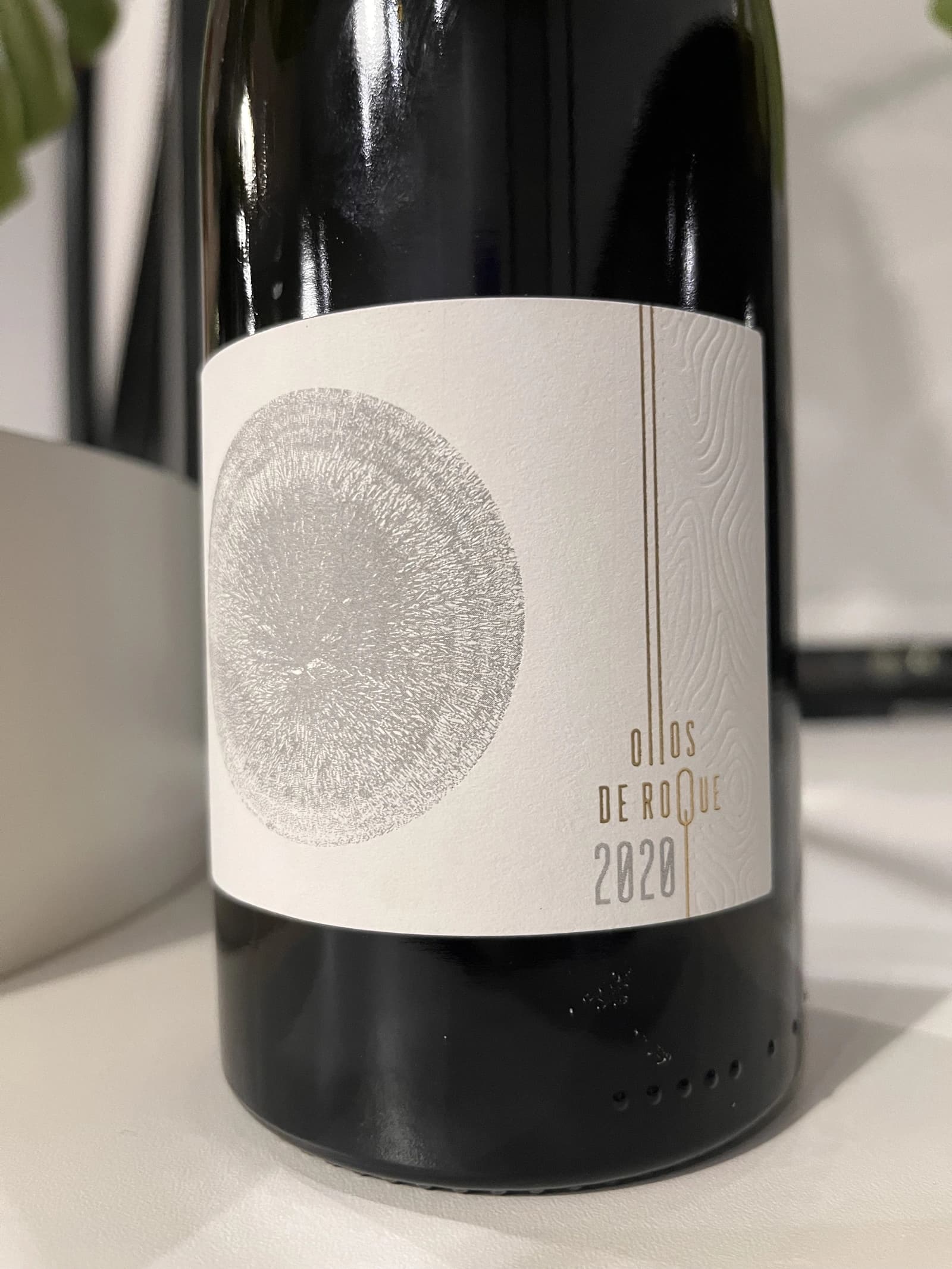Fazenda Agricola Augalevada Ollos de Roque 2020
- Region
- Spain » Vino de Mesa
- Type
- white still, dry
- Producer
- Vintage
- 2020
- Grapes
- Treixadura, Lado
- Alcohol
- 12
- Sugar
- 0.29
- Volume
- 750 mL
- Cellar
- not available

Ollos de Roque, the flagship wine of the Fazenda, is produced from vines that are relatively young, with many grafted onto youthful rootstocks. The grapes are exclusively sourced from the organically and biodynamically cultivated Augalevada vineyard, which is characterized by its granite composition. This vineyard yields a blend of Treixadura, Lado, and Agudelo grapes, each contributing unique qualities to the wine.
The winemaking process for Ollos de Roque involves the direct pressing of the grapes, followed by a fermentation phase that is partly conducted in stainless steel tanks at very low temperatures. This is complemented by another portion of the fermentation in old oak barrels, enhancing the wine's complexity. The ageing process is distinct, with one-third of the wine matured in amphoras and two-thirds aged in old oak barrels of 600-litre and 840-litre capacities for a duration of ten months. A notable addition to the cellar starting in 2020 is the ancient 500-litre Jerez barrels, estimated to be over 100 years old, which have significantly influenced the wine's profile.
A preliminary comparison between the French oak barrels and the older Jerez barrels reveals intriguing differences. Wines aged in Jerez barrels exhibit a more cohesive and analogue frequency, while those in the relatively younger neutral oak barrels tend to have a slightly edgier character. The evolution of the wines in these ancient barrels is anticipated with keen interest.
The grapes themselves bring unique characteristics to the blend. Treixadura, known for its complex profile and rapid acidity changes close to harvest, is picked early in the Augalevada vineyard to retain freshness and capture its distinctive herbal and citrus notes. Lado, appreciated for its high acidity and balanced phenolic maturity, is making a resurgence in the region. Agudelo, a regional biotype of Chenin Blanc, contributes significant acidity, texture, and mineral qualities to the blend, resonating with the geological similarities between Ribeiro and France’s Anjou wine region. The Ollos de Roque, thus, is a harmonious blend that encapsulates the unique terroir and varietal characteristics of its origin.
Ratings
Finally getting to taste this long-anticipated wine, it didn't disappoint. It showcases a typical flor-driven bouquet, brimming with the sweetness of honey, the zesty tang of lime fruit, the freshness of sea breeze, and the earthiness of pine nuts. On the palate, it's an intricate dance of freshness, complexity, and delightful saltiness, all coming together to create a delicious experience. The aftertaste lingers impressively, both long and rich in flavour. This wine excels in its depth and craftsmanship, presenting a profound profile that's smoothly rounded, without any harsh edges.
About Producer
There are few viticultural regions as dramatic, wild, and diverse as Ribeira Sacra. Being a boundary between the cool, rainy Atlantic coast and Spain's hot, dry interior, Ribeira Sacra enjoys the best and the worst of the two domains. The main threats to viticulture are the storms that blow in from the Atlantic, bringing plenty of rain and wind; and morning fogs. A paradise for fungus. And yet people grow vines and make wines here. Some locals even practice organic and biodynamic farming. And that's truly heroic.
Among them is Iago Garrido. Due to constant rain and humidity, mildew growth becomes almost uncontrollable in the region. As a result, vineyards require more frequent copper and sulfur treatments compared to other drier wine regions. The majority of the vineyards where Iago works are inaccessible by machines, therefore, most of the work is done by hand. This inaccessibility also motivates growers to use chemicals as manual labor is too expensive if the wines cannot be sold for a price to offset the extra cost. Despite these challenges, Iago sticks to organic farming with biodynamic practices.
In 2014, Iago released his first wine called Ollos de Roque (Eyes of Roque). He produced two versions of it; a commercial variant and an experimental one called Número Dous (Number Two in Galician), which he kept for private use. The former was aged in oak barrels, while the latter was vinified in buried amphorae and aged under the influence of flor. Initially, Iago thought that using amphorae was a mistake, so he decided to sell the oak version. However, his friends started to tell him how much they liked Número Dous, and Iago also found the same pleasure in this wine.
Número Dous provided Iago with a clear path, and what was a mere accident to avoid in the future became the central focus of the entire range. Nowadays, all his wines have varying levels of flor influence (even red wines).
The Mercenario range of wines is made from fruit that has been purchased or sourced from vineyards that are farmed by Iago, but not owned by him. Iago follows organic or biodynamic practices in the vineyards he works with, while some vineyards are a mix of organic and conventional depending on the grower. Only grapes from exceptional sites are accepted from conventional growers, and they make up a very small proportion of the overall fruit. Additionally, Iago is constantly encouraging the growers he works with to switch to organic farming methods.